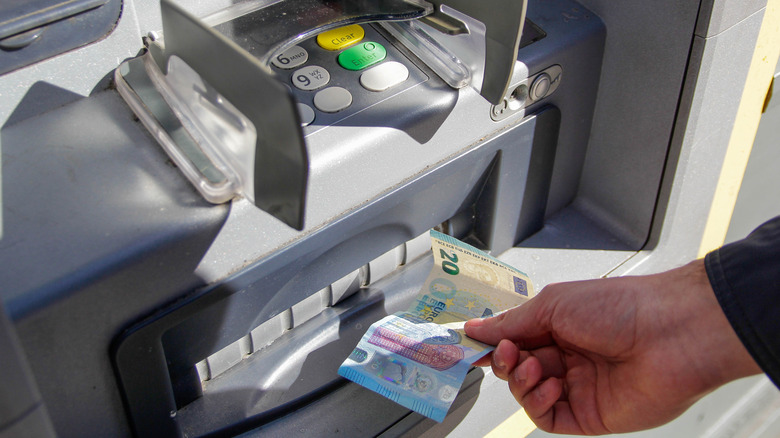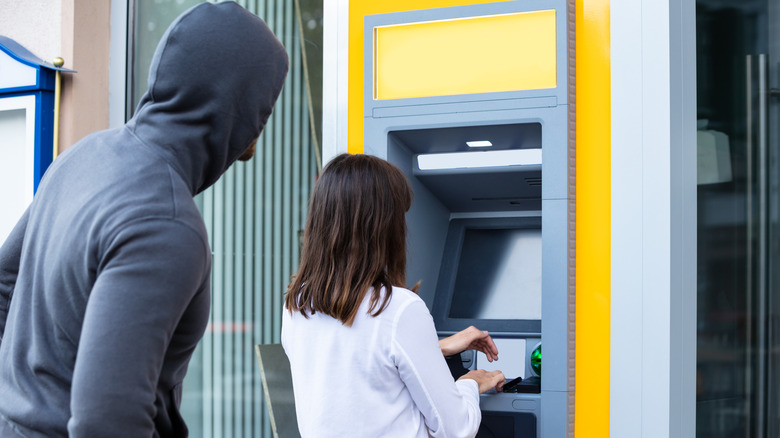Major Red Flags You're About To Be A Victim Of An ATM Scam In Europe, Per Rick Steves
One of the big questions when you're traveling to Europe is how to handle your money. You have to beware of using the currency exchange at the airport, which generally has high fees and a bad exchange rate, and figure out how much cash to have on hand. Travel pro Rick Steves advises against using your debit card as payment while traveling, except for one circumstance: when you need to take out cash. That, of course, means you're going to be using ATMs, which are a prime place for scammers to take advantage of you. However, Steves has some great advice on how to spot red flags that may mean you're about to be the victim of a scam.
On his website, the travel guide author explains that the first thing you need to be aware of is the people around you. If someone comes up to you while you're using an ATM, they may try to distract you while their partner in crime takes money from the machine after you've entered your PIN. He says, "A scammer may pretend to sell you a newspaper, place a €5 bill at your feet and tell you that you dropped some money, or ask you for a charitable donation. Sometimes the scammers are children." The best way to avoid this is to go inside a bank if you can to use the ATMs there. If you can't, either have a travel partner watch your back or look around beforehand to make sure no one is hovering. If someone tries to speak to you, ignore them and keep an eagle eye on your money.
Other ways to know if you're about to be a victim of an ATM scam
Another issue Rick Steves says is common at ATMs is someone peering over your shoulder as you put in your PIN. While this can happen any time, on vacation, you may be especially distracted. Again, going inside a bank is a good idea, but either way, make sure you block the view of anyone behind you with your hand as you punch in the numbers. If someone is hovering, that's a red flag.
Yet another hint that you're being scammed is if the ATM itself looks off. If anything appears taped or glued on, or if it's damaged in any way, it may be a card-skimming device. In addition, Steves says, "[K]eep an eye out for anything in the card slot that could trap your card (or in the cash dispenser that could trap the cash). Thieves have been known to insert a thin loop of tape cleverly designed to trap your card in the slot, then promptly arrive on the scene posing as a good Samaritan." He explains that they'll then try to "help" or tell you to put in your PIN again while someone else secretly takes note of what it is.
Finally, he has one more piece of non-scammy ATM advice when you're in a country that uses a different currency. Steves says that if you're withdrawing cash from a European ATM, your daily limit may be an issue, as the exchange rate may give you less to spend than you expect. Call your bank to have them raise the ATM limit before you leave. And, of course, be sure to also give your bank a ring if you suspect you've been scammed to protect your account and receive a new card.

